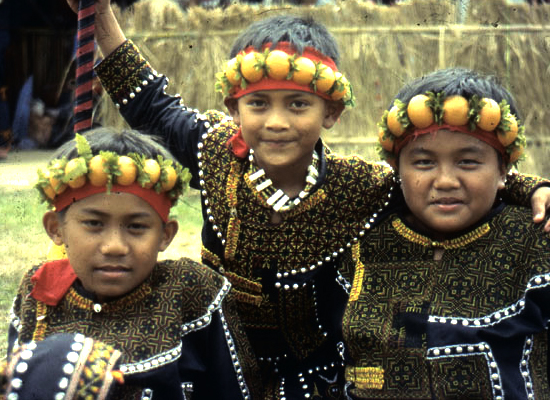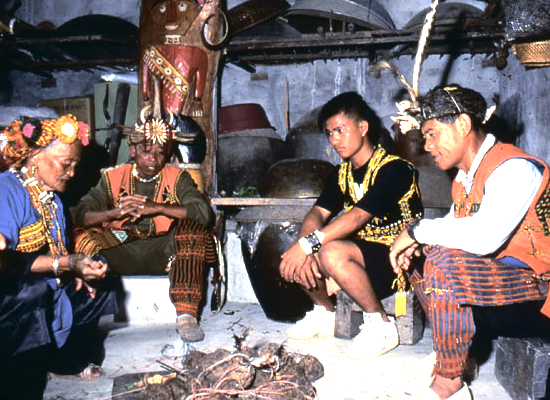 |
 |
Paiwan. Rukai class
by Huang bomin
 |
 |
Paiwan:
First, the composition features
Paiwan, Rukai same system for the aristocracy, in a regulated social class
system, each person is born will be divided into different status, which is in
accordance with kinship-based system.
Social class is divided into three types:
(1) the aristocracy: Paiwan privileged class.
(2) gentry class: its meaning and privileges in the community is inconsistent,
can enjoy duty-free and privileges and the name of a number of tattoos.
(3) the civilian class: the labor required for life in exchange for the class.
Second, property inheritance: Paiwan very seriously long heir, heir to inherit
from a parent long possessions. Long married the heir to inherit family house, I
usually look for opportunities heir and the heir of another long marriage.
Otherwise married rely on their own strength to build a new house.
Third, the marriage: Marriage Paiwan mainly class marriage. Marriage is one of
the conditions for change of status. The main factors to promote social mobility
is leapfrog marriage. Three forms of inter-class marriages were: the same class
with marriage, marriage upgrade, downgrade marriage three.
Rukai:
First, the composition features
Is divided into four levels:
(1) great leader: tribal landlords, owning land, hunting areas, rivers. Tribal
representatives to participate in public affairs outside the club. Weekdays to
incorporate the tax based.
(2) the aristocracy: the bulk of the purpose for the next of kin. Arable land
does not have to pay taxes, you can also follow the noble name.
(3) persons: with special merit or special talents civilian villagers, such as
carvers, blacksmith. Leader will grant him certain rights such as wearing
feathers, have class garlands.
(4) civilians: mostly sharecroppers, tenant farming to the big bosses. Civilian
leaders have the obligation to pay taxes, the content of the tax is not money,
but his crop farming millet, peanuts food; or hunting meat.
Second, property inheritance: Inheritance way Rukai pedigree general principle
is twofold: the first is the first male, female succession by the absence of
men, and men and women regardless of length heir to tailor the principle of
priority.
Third, the marriage: Marriage Rukai mainly class marriage. Marriage is one of
the conditions for change of status. And to promote social mobility. Three forms
of inter-class marriages were: the same class with marriage, marriage upgrade,
downgrade marriage three. Generally the ratio of high-class object of marriage
itself can improve their status, access to considerable social status and
spouse, but the real identity of those who obtain higher compared with children.
Therefore, those with high-class marriage, often the main focus in the
advancement of their children.
picture
&Source:http://www.tacp.gov.tw/home02_3.aspx?ID=$3081&IDK=2&EXEC=L